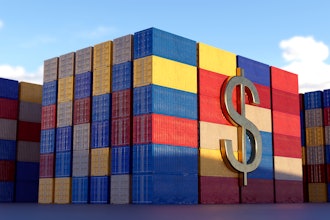TUSCALOOSA, AL — In honor of Earth Day, April 22, supply chain management provider AFFLINK is offering the following suggestions on how distributors and suppliers can become more environmentally responsible.
Most of these suggestions involve the transport and packaging of products. According to Michael Wilson, vice president of marketing for AFFLINK, "this is usually where distributors can make their most significant contribution in reducing the industry's environmental footprint."
With this in mind, Wilson suggests the following:
Renegotiate SLAs. SLAs, Service Level Agreements, are agreements that require suppliers to make smaller deliveries, often driven more by a lack of confidence in the supplier than actual need. Renegotiate SLAs so that deliveries are based on product need, not worry. This cuts costs and energy waste at the same time.
Avoid RTUs. Distributors and suppliers should explain to end-customers that not only are ready to use products more costly, delivering them can increase fuel needs and greenhouse gasses. It is far more environmentally responsible - and cost effective - to purchase chemicals in one and five gallon containers and dilute as needed.
Review delivery patterns. Reviewing past shipment and delivery history often reveals a lack of delivery coordination and considerable fragmentation. These same reviews often reveal where deliveries can be consolidated, re-scheduled, and re-routed to help replace multiple smaller shipments with fewer and larger single shipments.
Turn Right or Left. Simple as it sounds, some delivery organizations have reduced delivery times and fuel needs dramatically by eliminating left hand turns or in some cases, right hand turns. While this does not work in all situations, consider all options that reduce delivery times and distance traveled, regardless of turns.
Redesign products. Distributors should work with manufacturers to help them design product packaging to reduce weight, use less packaging material, and minimize the amount of space the product requires in the truck.
"But the most important thing is to simply start," adds Wilson. "These strategies can take time to implement but once started, they open the door to many more possibilities that can help protect the environment along with reducing costs."
Below are some optional tips from AFFLINK:
- Reduce product packaging overall
- Avoid shipping water (water is heavy)
- Use recyclable wrapping, boxes, bottles, pallets, etc.
- Use vehicles with good fuel economy
- Do not leave trucks running when not in use






















